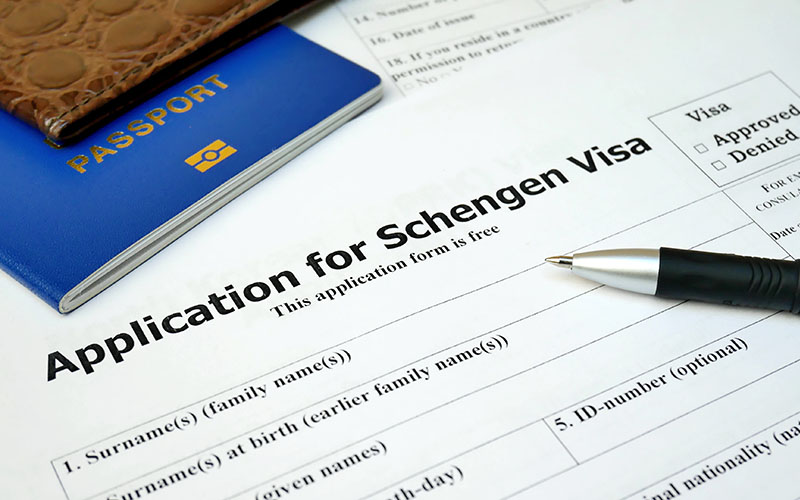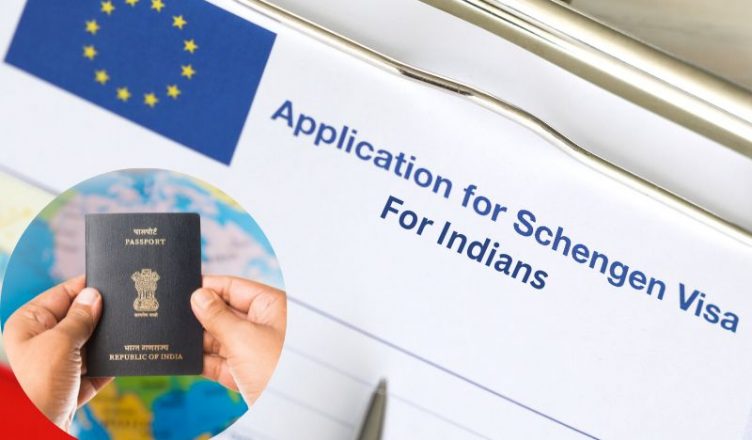Schengen is a region in Europe comprising 26 countries that follow a common visa policy. It is also known as the world’s largest visa-free zone for countries that are members of it. To avail of a Schengen visa, Indians must go through specified procedures and meet the detailed requirements. Because every visa application process is a hassle, understanding how the process works and conducting basic research are essential for smooth approval. It will help the process be less stressful and raise the chance of approval to enter the Schengen countries.
So, without further ado, here is some handy information on Schengen visas for Indians.
What is a Schengen Visa?
As mentioned above, the Schengen zone follows a common visa policy. A Schengen visa permits you to enter any of the Schengen countries, whether for work, leisure, or other purposes. The Schengen Zone welcomes visitors from across the globe, and some countries even fall under the visa-exempt scheme; however, India does not fall under this category. All Indians need Schengen visa, be it a family holiday, a romantic honeymoon, or a solo travel in the Schengen zone.
What is the validity of a Schengen Visa?
A Schengen visa permits you to travel and stay in the Schengen region for 90 days within a period of 180 days. The Schengen visa validity rules have to be followed strictly.
Do Indian nationals need a Schengen visa?
Yes, any citizen of India must obtain a Schengen visa to enter the Schengen countries. A Schengen Visa is also obtained by US permanent residents, and UK, Australian, Canadian, and Green Card holders who are Indian citizens.
Who can apply for a Schengen visa in India?
To successfully avail of a Schengen visa from India at the Schengen embassies, consulates, or visa application centres, you must abide by the following criteria:
- Third-world nationals are required to obtain a visa to enter Europe, living in India under a temporary or permanent residence permit.
- Indian passport holders
Types of Schengen Visa
As a national of India, you can apply for the following types of Schengen visas depending upon the purpose of your visit.
1. Transit visa:
A transit visa is issued for a short period, permitting you to transit through the Schengen countries for your final destination.
2. Tourist visa: If you are visiting the Schengen Zone specifically to see the sights and explore the country, you must apply for a Schengen tourist visa.
3. Visitor visa: Apply for a Schengen visit visa if you have a family member, relative, or friend who resides in the Schengen area or are an EU/EEA citizen. Such a visa requires an additional document—a letter of invitation from family or friends.
4. Business visa: You must apply for a Schengen business visa if you have to conduct business in any of the Schengen countries with a company or an individual. In the event of another business invitation, you must submit the invitation letter from that business.
5. Medical visa: A medical visa is issued if you are visiting the Schengen region to complete medical treatments or undergo surgeries. For a medical visa, you must submit proof that you are truly in need of medical attention and have sufficient funds to cover the costs of the medical treatment.
6. Student visa: A student visa can be availed if you are visiting the Schengen Area or EU for short-term studies not longer than 90 days, otherwise, you must apply for a long-stay visa for the country to pursue your further studies.
7. Cultural exchange visa: You must apply for a cultural exchange visa if you visit the Schengen area for athletic, religious, cultural, or film crew events. Such a visa is issued for the same period it takes to complete the course, program, or training. Depending on your purpose of visit, different requirements of documents apply.
8. Visa for official visits: If you are entering the Schengen zone for formal events such as negotiations, exchange programs, or other similar events, apply for a visa for official visits.

How do I Apply for a Schengen Visa from India?
- Select the visa type you need.
- Fill out the application form.
- Schedule an appointment.
- Obtain your visa documents.
- Submit your application.
- Pay the visa fee.
- Receive your visa.
Documents Required for a Schengen Visa
- Duly signed and filled out Schengen visa application form
- Passport-size photographs recently clicked against a white background.
- Your original Indian passport or other travel documents must be no older than ten years and valid for at least three months after the date of departure from the Schengen Area.
- Photocopy of the data page of your passport (A4-size copy)
- Leave a letter of your company (if employed)
- No Objection Certificate (NOC) of school or university (if student)
- A travel and medical insurance policy covering the costs of €30,000
- itinerary details, including a personal cover letter
- Proof of lodging demonstrating your entire stay in the Schengen area
- Proof of your civil status, like a marriage certificate, birth certificate of children, death certificate of your spouse, or ration card (if applicable).
- Proof of financial status:
- If employed: employment contract or payslips of the past three months
- If self-employed: Certificate of Proprietorship or other proof of ownership (proof of land title, proof of income from agriculture, etc.)
- Personal original bank statement of the past three months demonstrating sufficient funds.
- Income Tax Return (ITR) form or Form 16 (Certificate of Income Tax Deducted at the Source of Salary)
Please note that all the documents are to be presented in the given order. Do not staple the documents.
Schengen Visa Fee
The cost of a Schengen visa varies depending on the age of the applicant.
- Adult: €80
- €80 for a child aged 12 to 18.
- €40 for a child aged 6 to less than 12 years.
- Children under the age of six are free.
Please note that the above-mentioned costs are subject to change, and the fees are non-refundable in the case of visa rejection.
Takeaway
A Schengen visa takes around 15 days for approval. In certain events, it may take up to 30 days, and in some cases, it may go up to 60 days. So, apply as early as possible. You must apply for a Schengen visa at least 15 days before your intended departure date but no earlier than six months. It will be a good idea to consult a visa expert for a hassle-free Schengen visa application.
